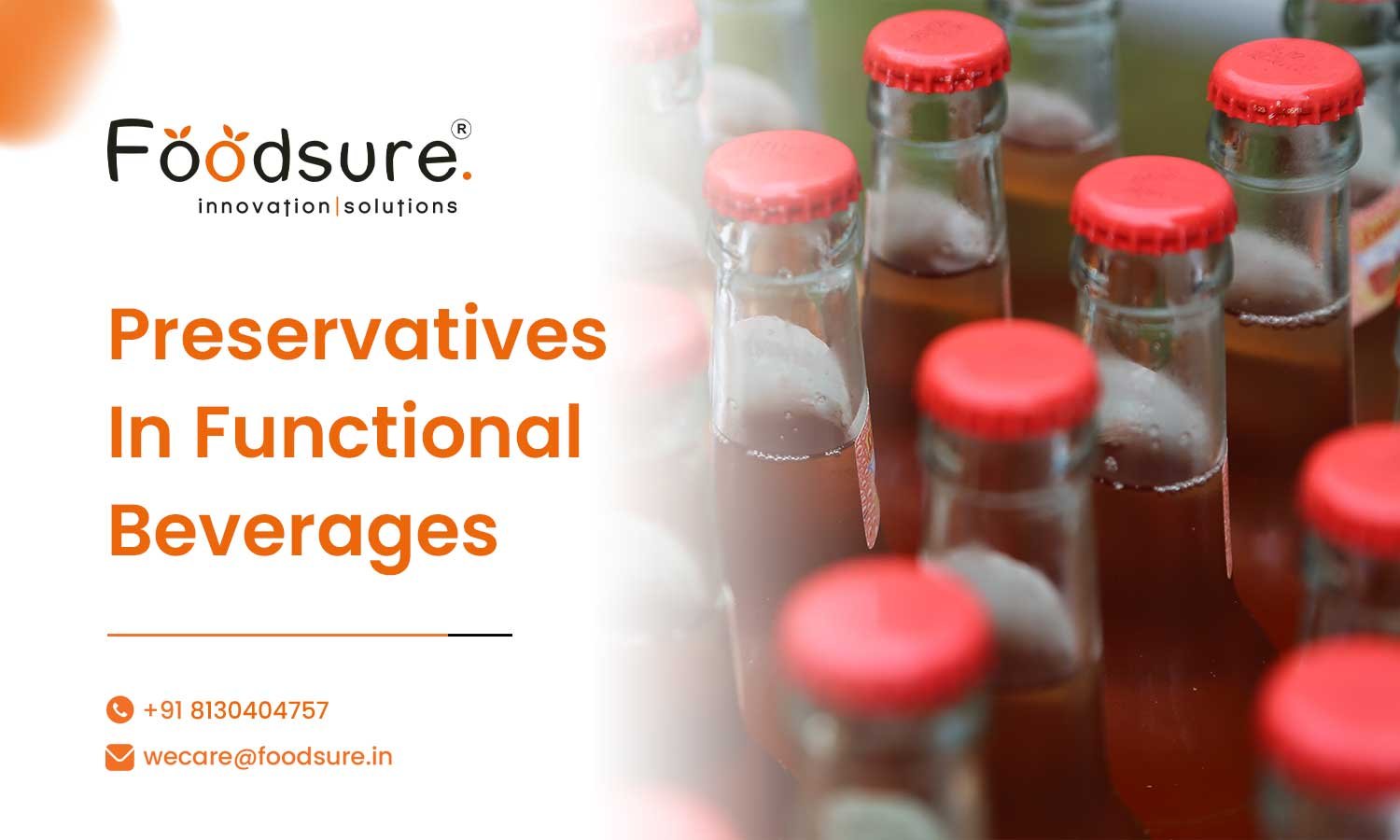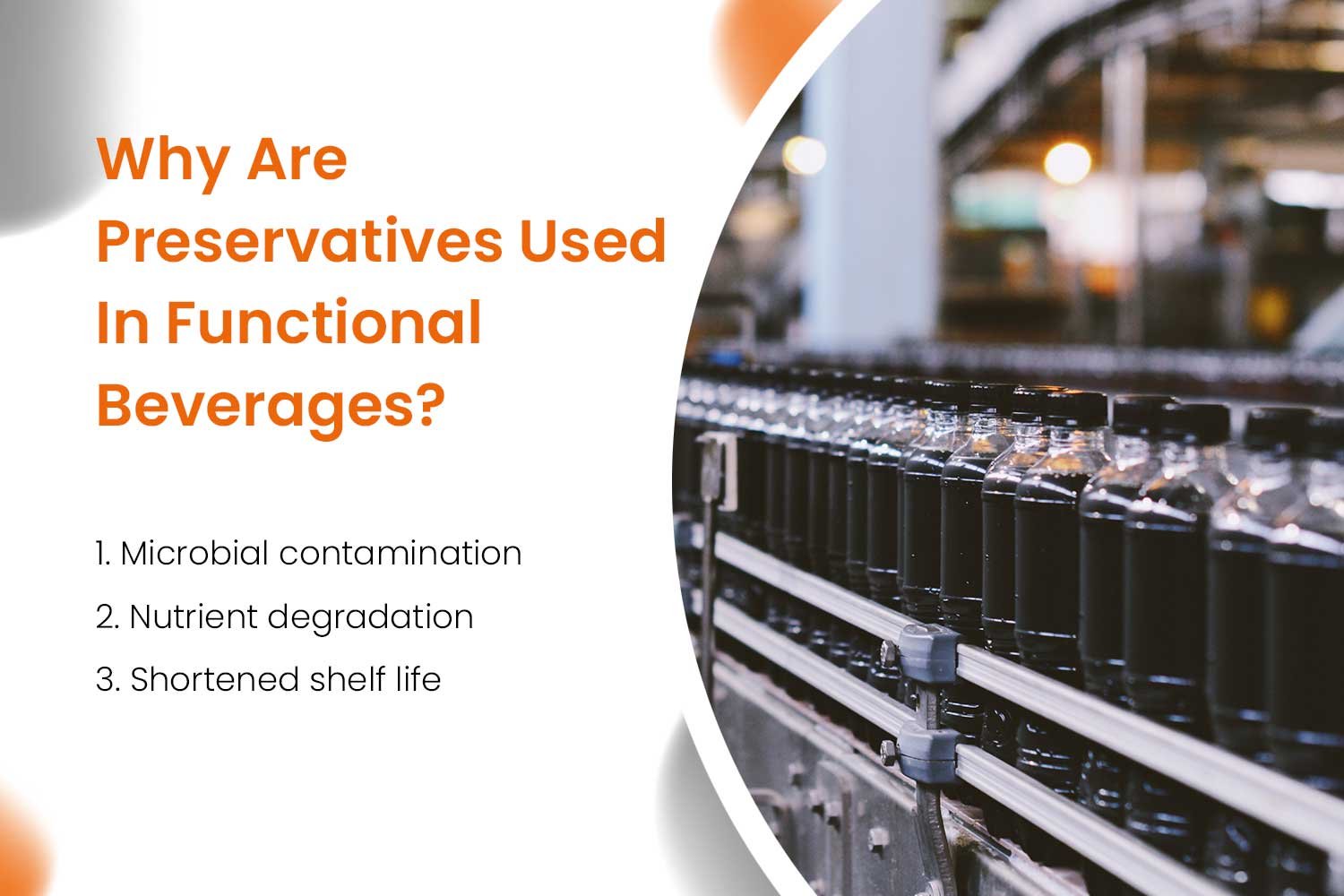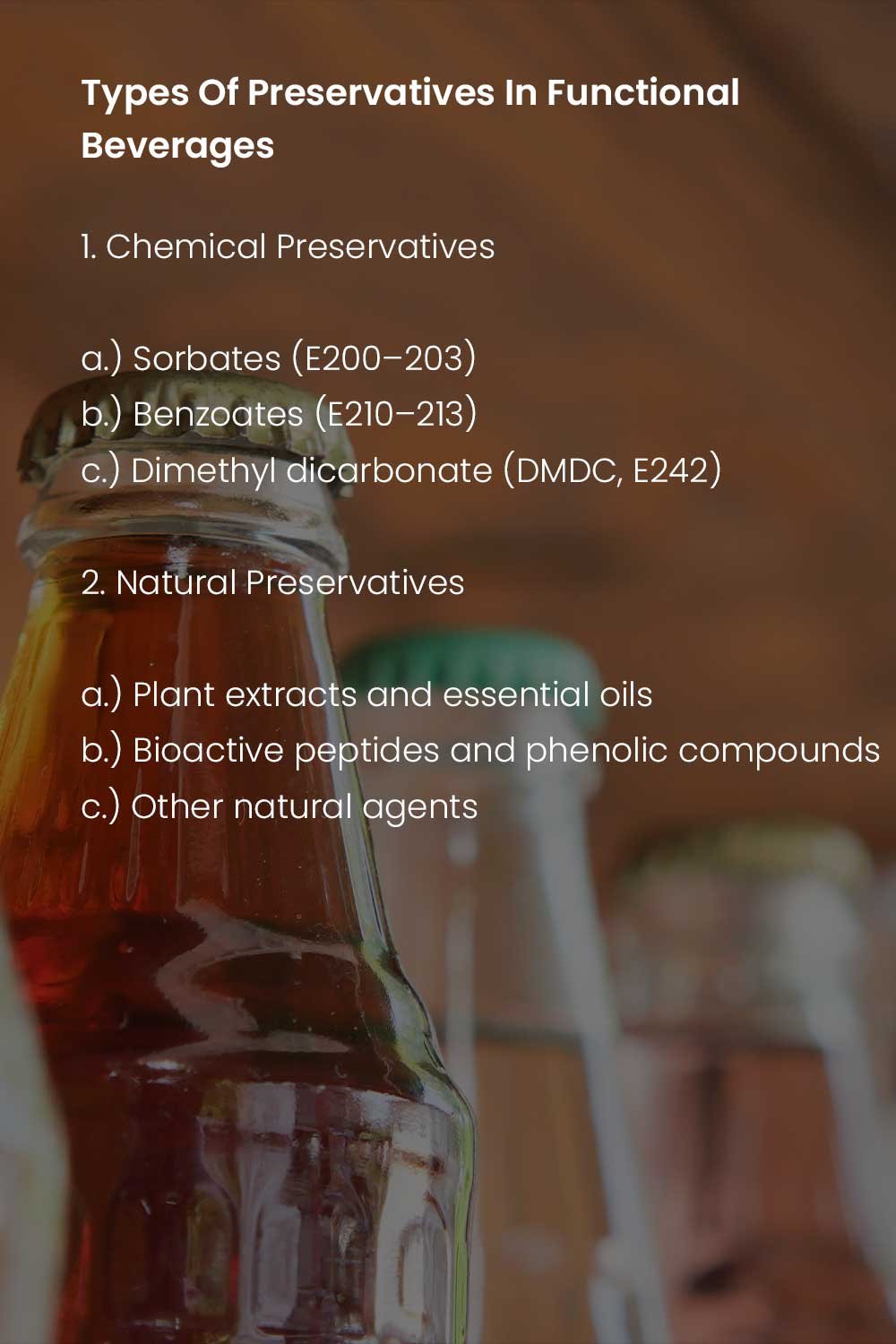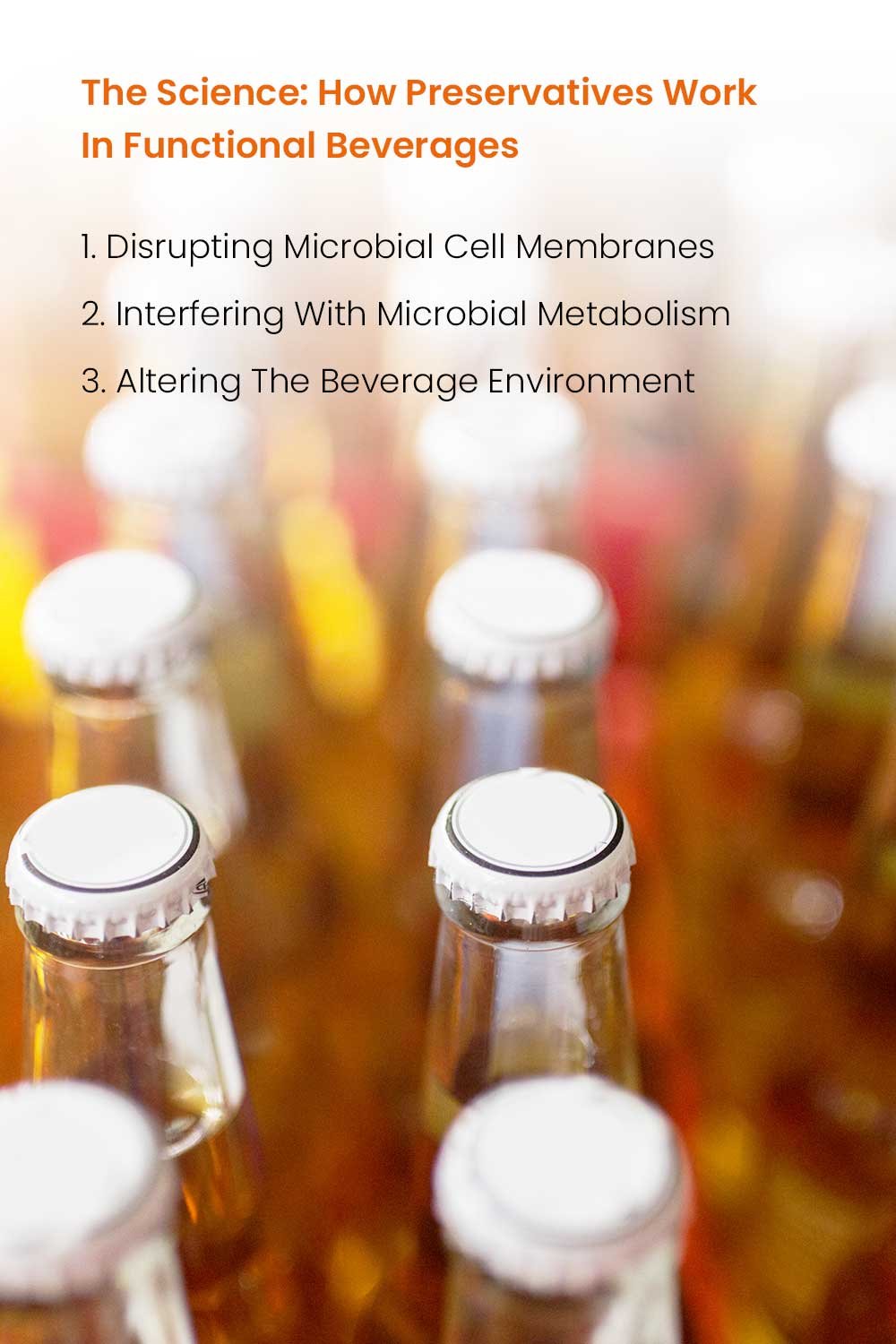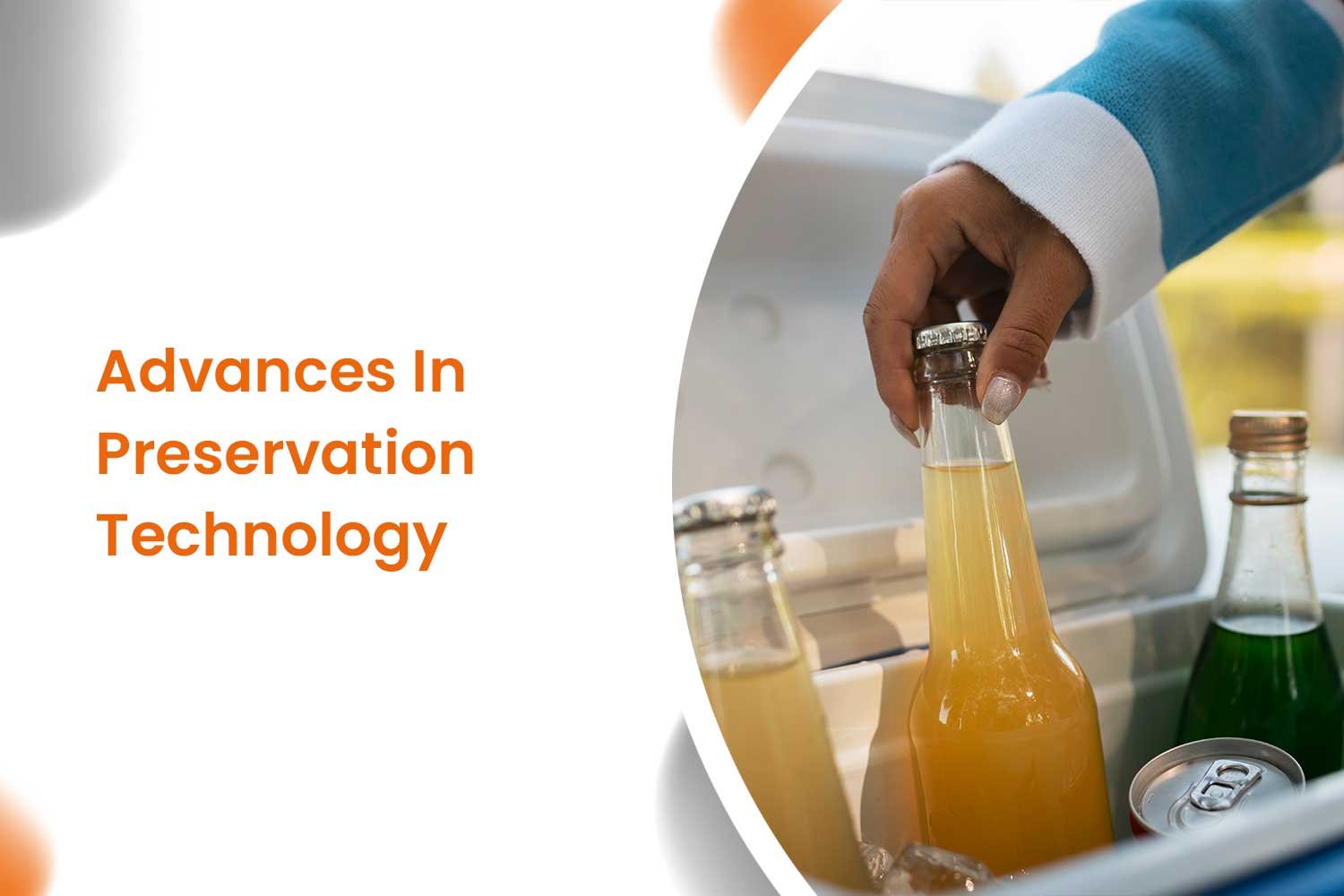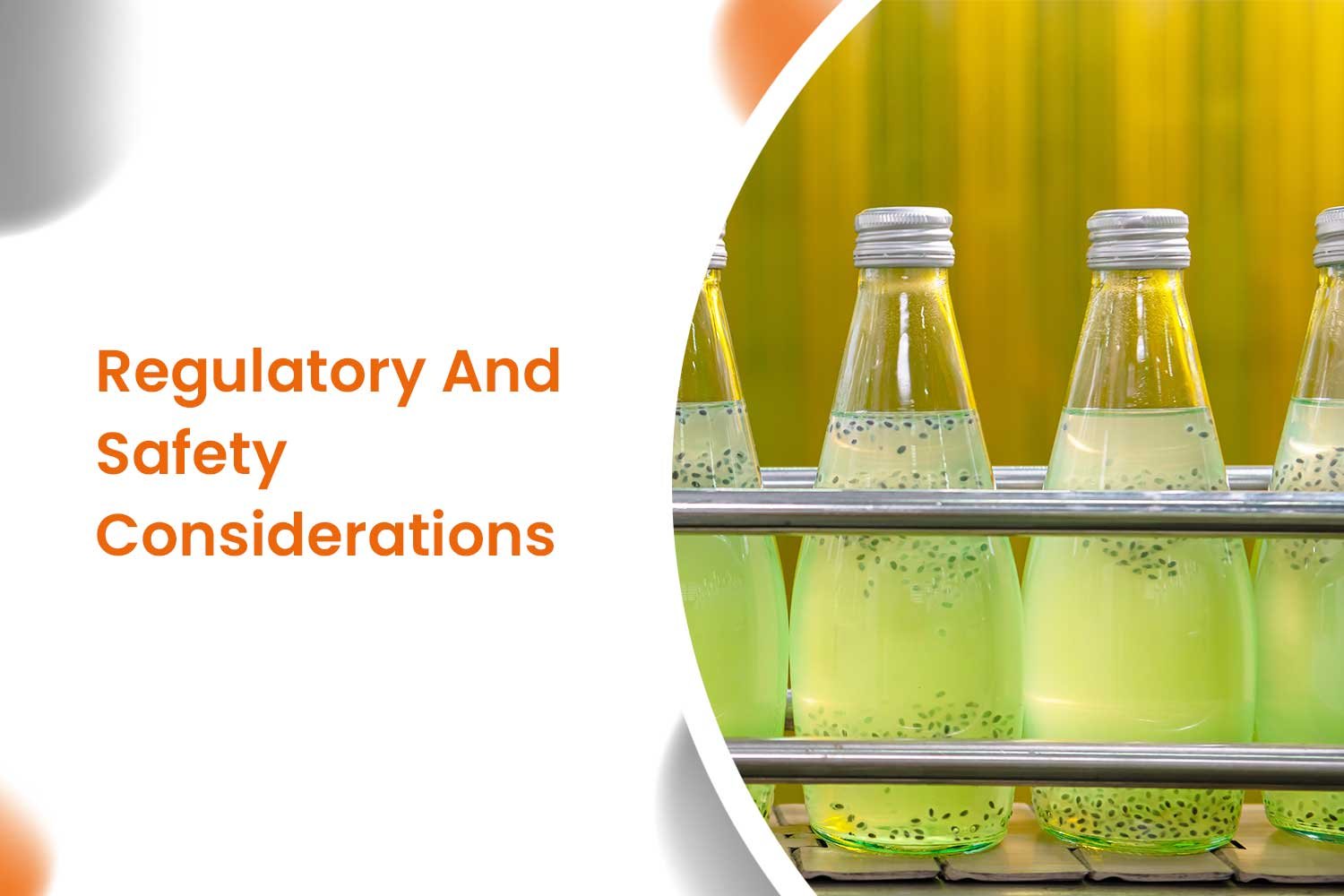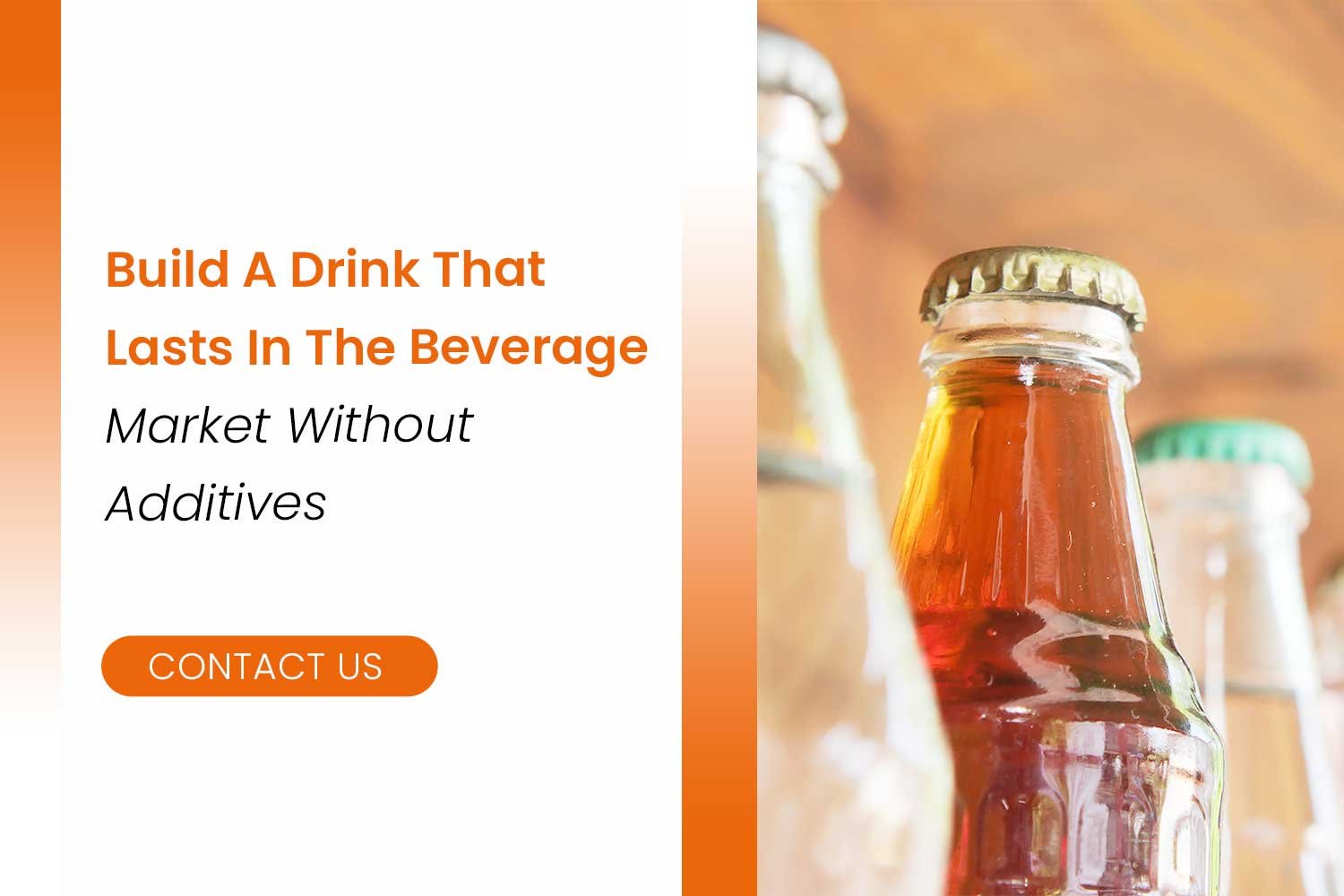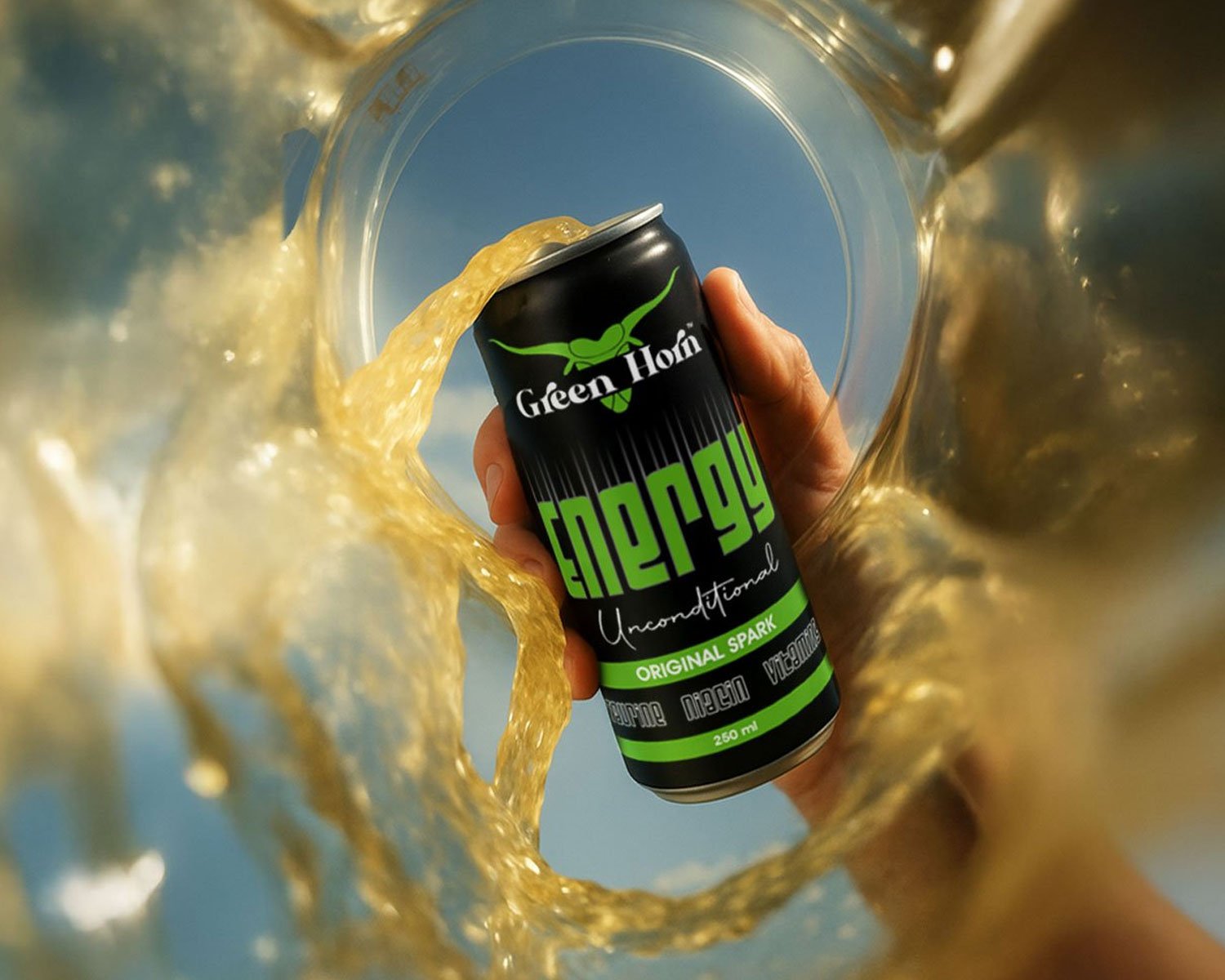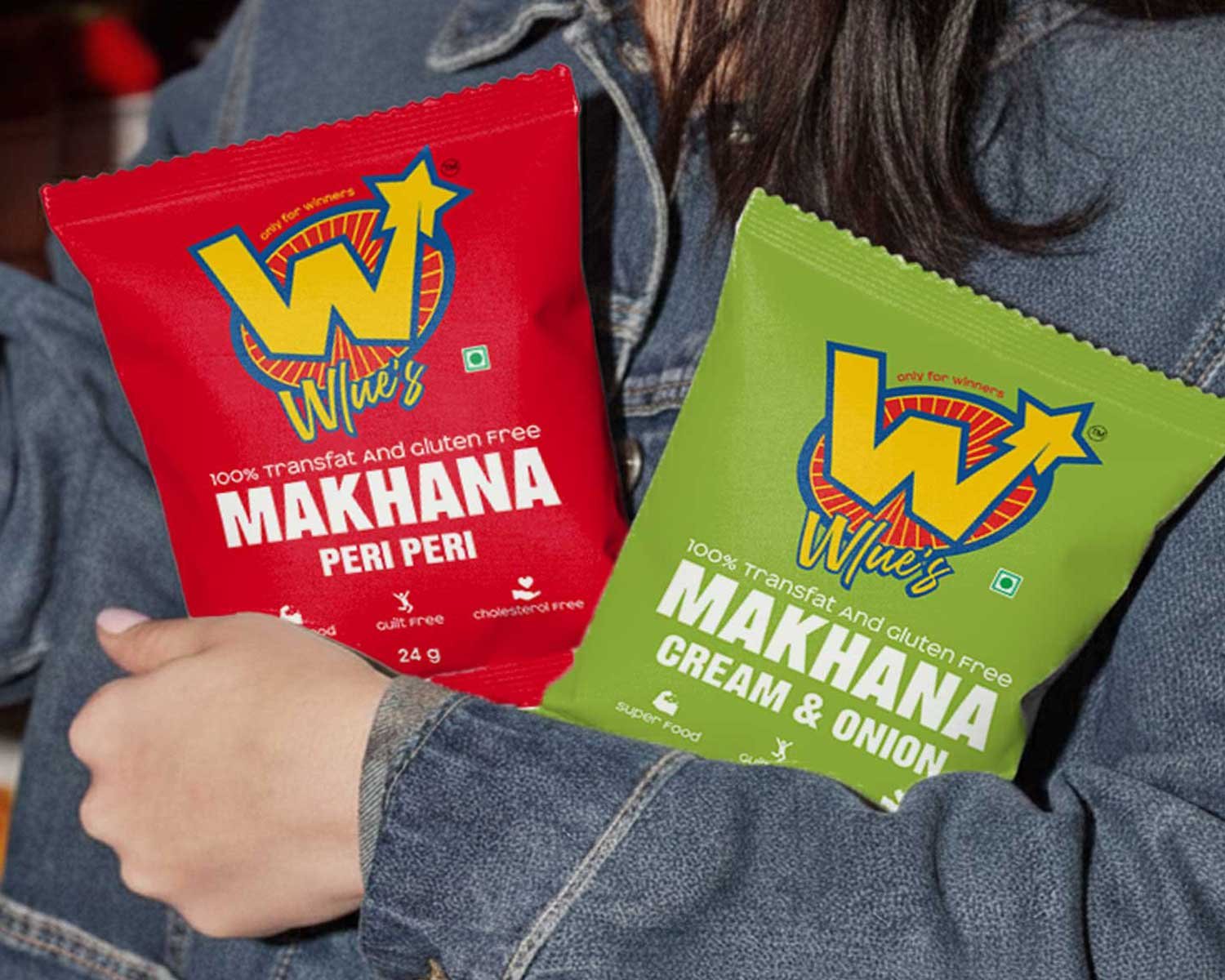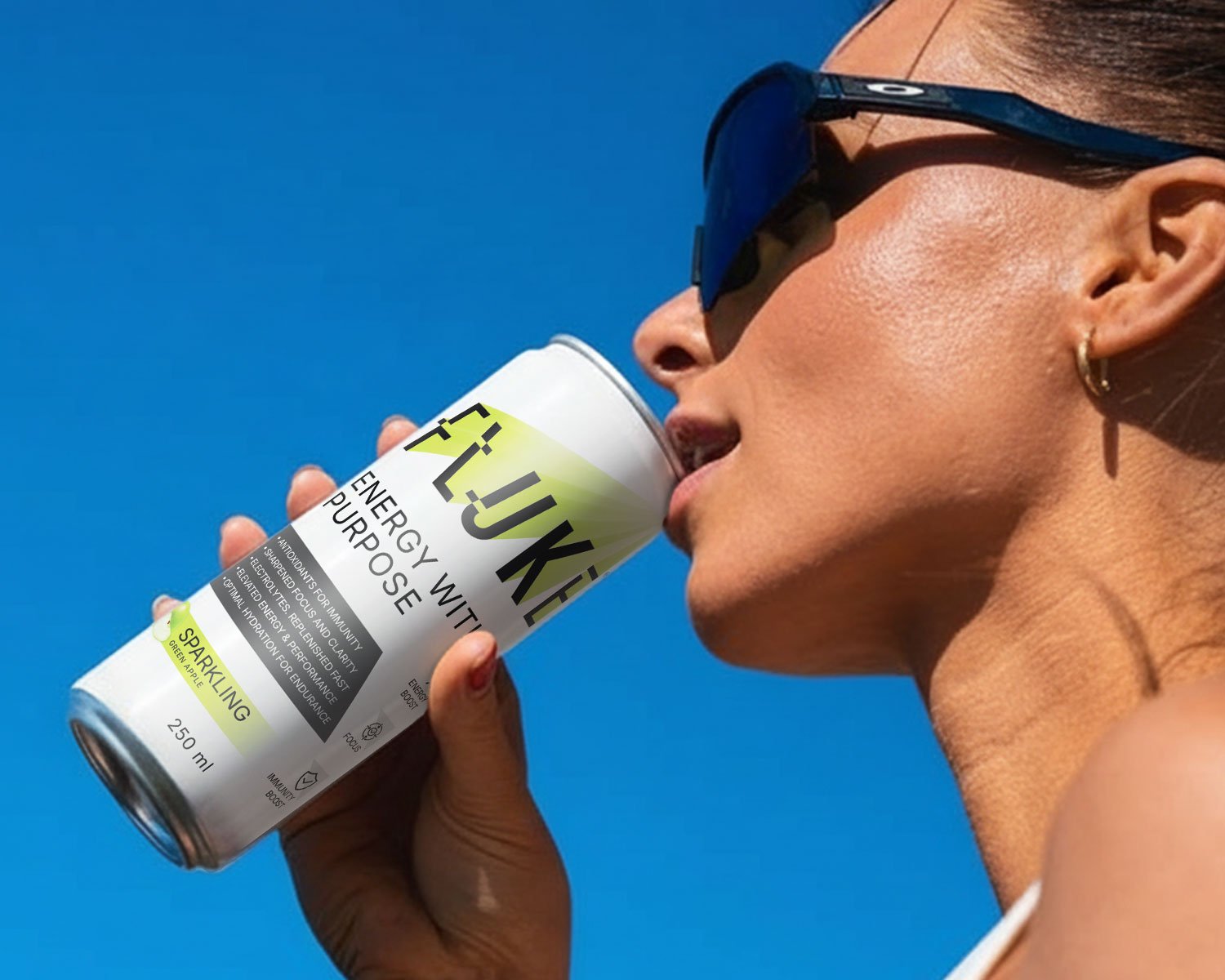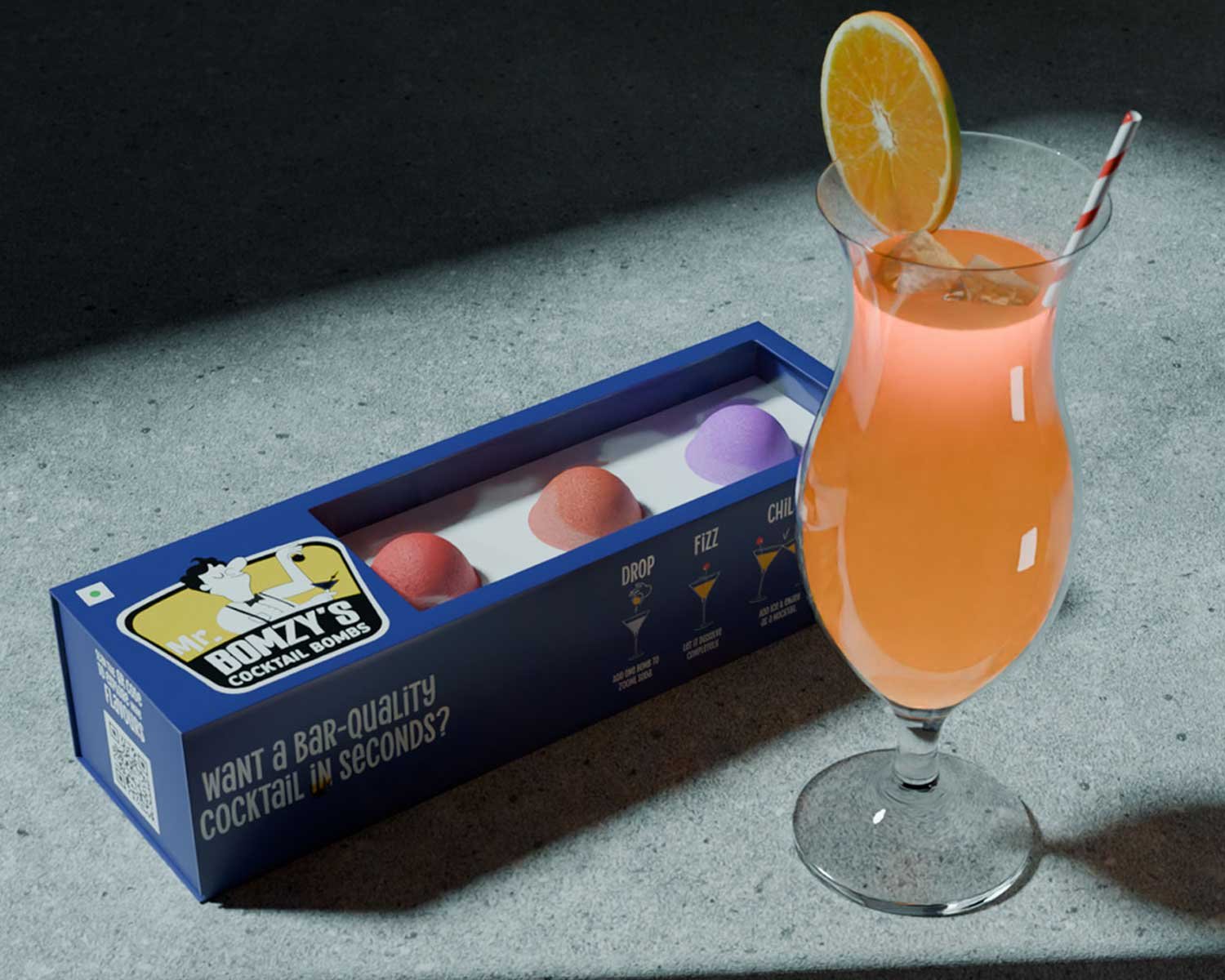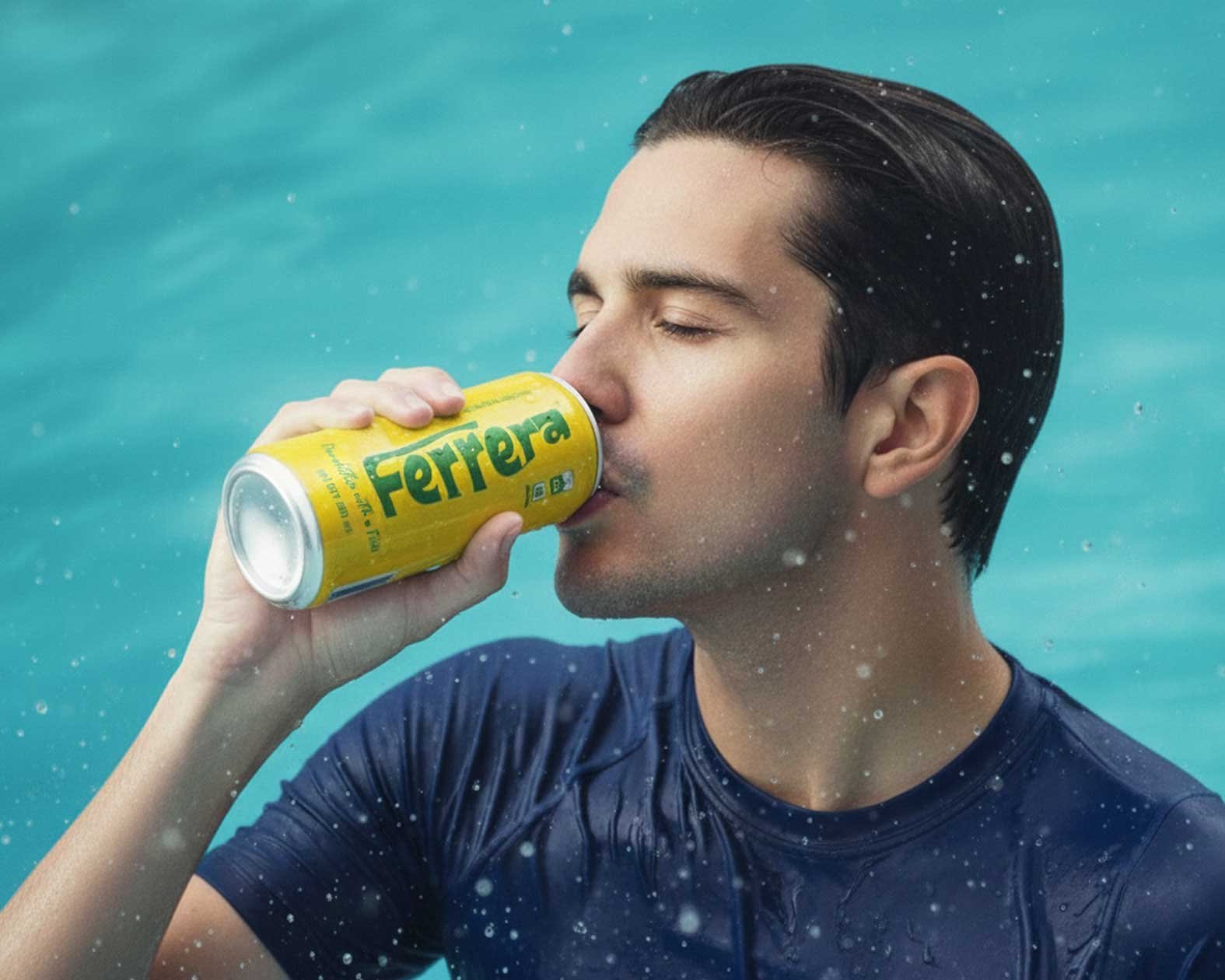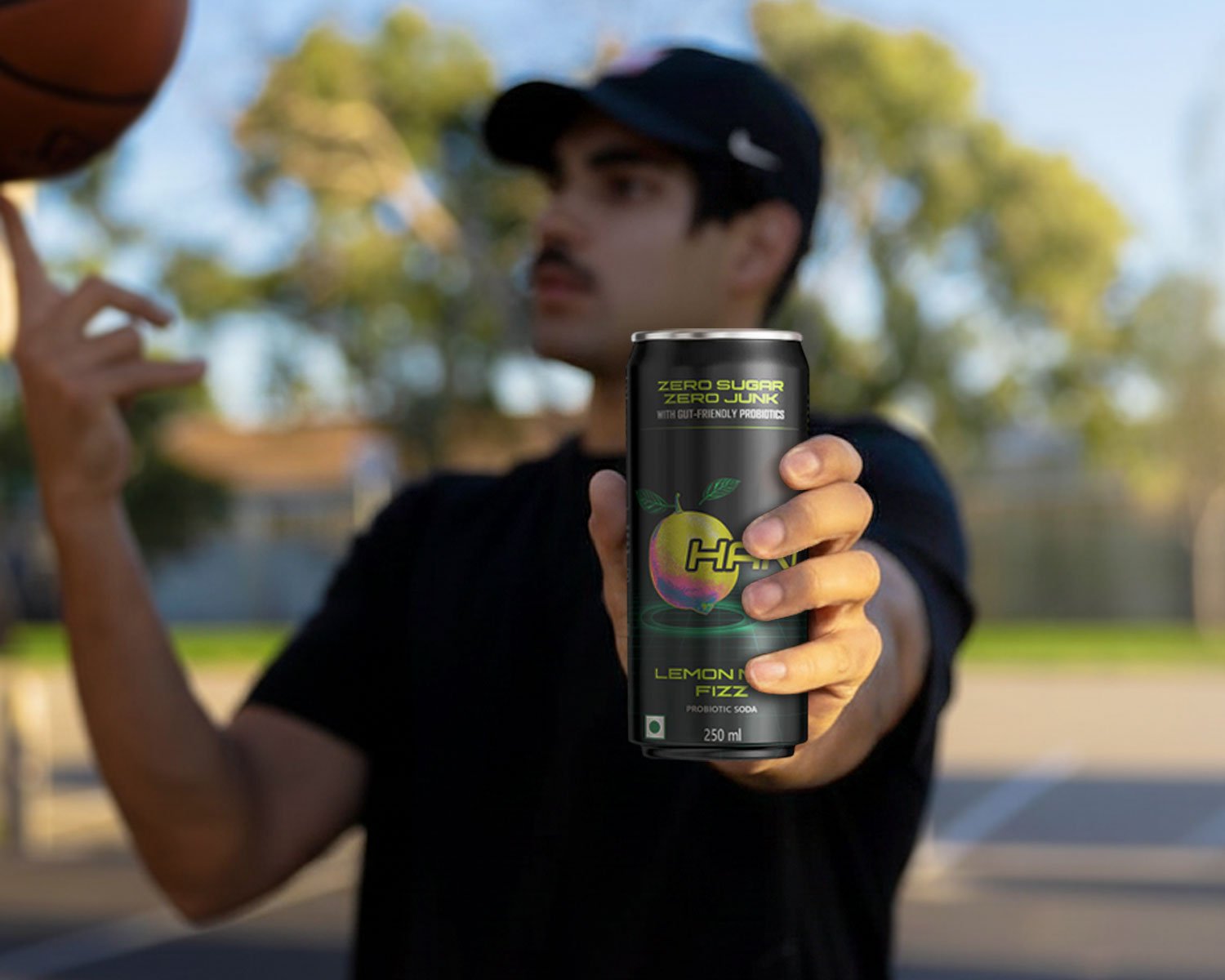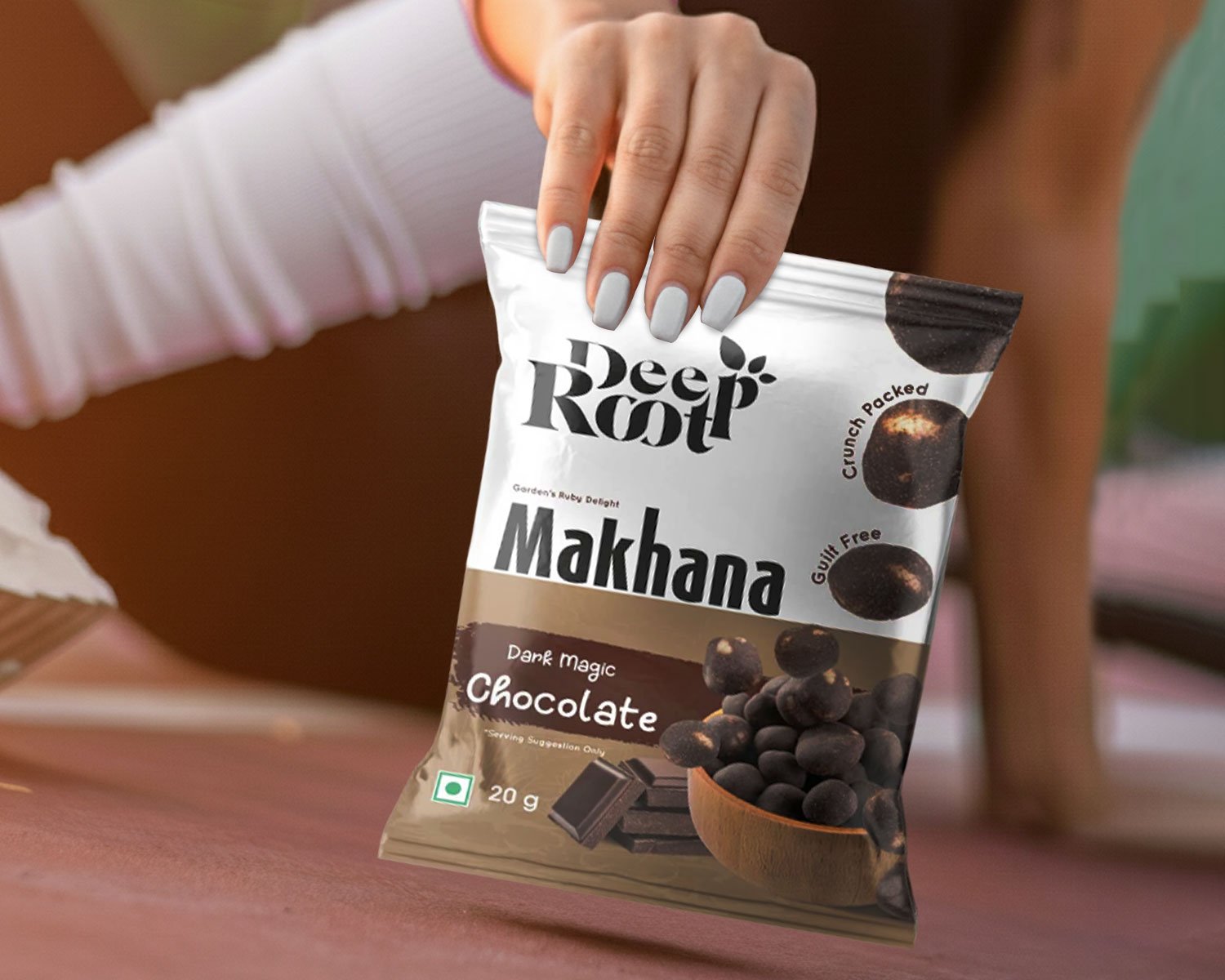The rise of functional beverages, drinks that are enriched with vitamins, minerals, probiotics, or plant extracts, is witnessing a major global growth because of the increased health-conscious consumption. But, as these functional beverage products promise more health benefits, they also face more challenges in maintaining the safety, stability, and shelf life of the functional drinks. This raises a question: Are preservatives in functional beverages truly necessary? Go through this blog, and then you will know what the latest research and regulatory science reveal about the preservatives in functional beverages.
Why Are Preservatives Used In Functional Beverages?
Preservatives in functional beverages are used to avoid microbial spoilage and chemical breakdown. The nutrient-rich profiles of functional drinks have low sugar, less acidity, and create an environment with bacteria, yeasts, and molds that can grow if they are not properly controlled. If proper preservation is not done of your functional beverages, they can be at risk for:
- Microbial contamination: These are the spoilage organisms that can impact the safety of your functional beverage or can destroy the flavors, and result in health problems to the consumers
- Nutrient breakdown: The nutrients, like vitamins, probiotics, and bioactives, can lose their potential due to oxidation reactions in the functional beverages.
- Shortened shelf life: They can even reduce the stability of the product, which will negatively impact the satisfaction of the consumers.
Types Of Preservatives In Functional Beverages
1. Chemical Preservatives
- Sorbates (E200–203): This type of chemical preservative is highly effective against bacteria, yeasts, and molds. Their antimicrobial action depends on the pH and composition of the functional beverage.
- Benzoates (E210–213): Benzoate preservatives are common in acidic and carbonated drinks. Benzoates are most effective at pH 2–4.4, but can react with ascorbic acid (vitamin C) to form benzene, a known carcinogen, especially at high temperatures and long storage times. This risk has led to reduced benzoate preservative use in some markets.
- Dimethyl dicarbonate (DMDC, E242): They are used for cold-sterilized drinks. DMDC rapidly breaks down into harmless byproducts after reducing microbes. Regulatory agencies have found DMDC safe when used as directed.
2. Natural Preservatives
- Plant extracts and essential oils: These natural preservatives in functional beverages come from herbs, spices, and fruits with antimicrobial properties. Essential oils can be effective in acidic beverages if their impact on flavor is properly managed.
- Bioactive peptides and phenolic compounds: Extracted from plants or fermentation processes, these can inhibit spoilage organisms while meeting clean-label trends.
- Other natural agents: Honey, lemon juice, and saponins are explored for their preservative effects, but their efficiency and sensory impacts can change.
The Science: How Preservatives Work In Functional Beverages
Preservatives in functional drinks are important for maintaining the safety and shelf life of functional beverages by targeting microbial growth and chemical breakdown through different factors:
1. Disrupting Microbial Cell Membranes
Preservatives in functional beverages, like sorbates and benzoates, get into the microbial cell membranes that cause leakage of vital cell components. This disruption blocks the cells from absorbing nutrients and causes them to die. These compounds work better in acidic conditions (low pH), where they stay in a stronger and more active form.
2. Interfering With Microbial Metabolism
The compounds like dimethyl dicarbonate (DMDC) stop harmful microbes by changing their main enzymes. This blocks their ability to grow. DMDC is especially helpful in drinks that are cold-sterilized, and after killing the microbes, it breaks down into safe, harmless substances.
3. Altering The Beverage Environment
Preservatives help to stop germs from growing by making the environment too acidic or by reducing moisture. Most bacteria can’t grow well if the pH is below 4.6 or if there’s not enough water. When these methods are used together with preservatives in functional drinks, they work even better to keep the product safe.
Are Preservatives Always Necessary?
Preservatives in functional beverages are not always needed. Their necessity depends on factors like acidity, processing, packaging, and shelf life. Some functional beverages can stay safe without them, but others require preservatives to prevent spoilage and maintain quality.
7 Main Factors That Affect The Preservatives In Functional Beverages
The need for preservatives in functional beverages is affected by several factors:
- Processing methods: Methods like pasteurization, aseptic filling, and high-pressure processing can help to remove the need for added preservatives in functional drinks. But they might not work well with all types of functional ingredients, so functional beverage recipe formulation experts use them wisely. .
- Formulation: Beverages with high acidity or low water activity are naturally more stable during the functional drink formulation.
- Packaging: Airtight, light-resistant containers extend shelf life of the functional by reducing oxygen and light exposure
- Intended shelf life and distribution: Products for ambient storage or long-distance shipping are more likely to require preservatives in functional drinks.
- Beverage pH: Lower pH increases potential of preservatives by favoring the unseparated molecules.
- Ingredient Composition: Vitamins and minerals can interact with preservatives in functional drinks, sometimes reducing efficiency or causing byproducts.
- Packaging and Storage: Oxygen and light exposure can promote spoilage and nutrient breakdown; temperature influences microbial growth and chemical stability.
Advances In Preservation Technology
Recent research is looking at using a mix of methods to keep the functional drinks safe, like combining small amounts of preservatives with gentle heat, high pressure, or natural germ-fighting ingredients. This helps to reduce the total amount of preservatives needed. New techniques like encapsulation and emulsions are also being used to protect the nutrients and make the product last longer.
Regulatory And Safety Considerations
All preservatives used in functional beverages have to undergo some safety assessments by authorities such as the FDA, FSSAI, and EFSA. These regulations specify maximum allowable levels and require ongoing safety monitoring. The trust of the consumers is built on these regulations and labelling practices in the functional drinks
The Clean Label Movement And Consumer Trends
Consumers are more demanding of clean-label products, the beverages that have fewer artificial and more natural ingredients. This has led to research into natural preservative alternatives and processing technologies that reduce the synthetic additives. However, natural preservatives may not always match the efficiency of synthetics, and their impact on taste and aroma must be carefully managed.
R&D Insights: Balancing Safety, Quality, and Innovation
- Preservatives in functional beverages remain important for many products, especially those with extended shelf life, complex functional beverage recipe formulation, or wide distribution.
- The industry is innovating with natural preservatives, advanced processing, and improved packaging to meet both safety standards and consumer preferences.
- Ongoing research explores the stability, bioavailability, and sensory impacts of both traditional and novel preservation methods.
Build A Drink That Lasts In The Beverage Market Without Additives
Want a clean-label beverage that stands out and stays shelf-stable? You don’t need artificial preservatives to compete; you need a smarter functional drink recipe formulation. At Foodsure, we combine R&D expertise with real-world testing to help you create additive-free functional drinks that meet regulatory standards, survive supply chains, and win consumer trust.
Let’s co-create your preservative-free formula, tested for safety, stability, and success.
Talk to our functional beverage formulation experts today. Call us on +91 8130404757.
FAQs
Preservatives in functional beverages protect the drink from bacteria and spoilage, ensuring safety, consistent taste, and longer shelf life without compromising daily usability.
Functional drinks contain vitamins, probiotics, and bioactive ingredients that break down faster, making preservatives essential for stability and product performance.
Approved preservatives are safe when used within regulated limits. However, consumers increasingly prefer functional beverages with minimal or natural preservatives.
Sodium benzoate, potassium sorbate, and citric acid are widely used preservatives in functional beverages due to their effectiveness and regulatory approval.
When properly formulated, preservatives help protect nutrients from early degradation rather than reducing their effectiveness.
Yes, preservative-free functional beverages use techniques like pasteurization, aseptic packaging, or natural antimicrobial ingredients.
Preservatives in functional drinks are listed clearly on ingredient panels, often with names or INS/E-numbers required by food regulations.
In controlled amounts, preservatives do not impact taste, but overuse can affect flavor perception and consumer acceptance.
Natural preservatives are preferred for clean-label positioning, but they require precise formulation to maintain shelf life and safety.
Consumers should check preservative type, dosage transparency, clean-label claims, and overall nutritional balance in functional beverages.

